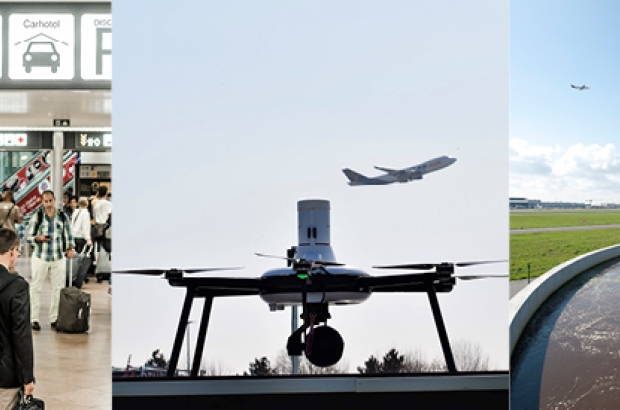- Daily & Weekly newsletters
- Buy & download The Bulletin
- Comment on our articles
Brussels Airport prepares for a busy summer with new staff, new strategy
As the remaining pandemic restrictions in Belgium fade into the background, the country is tentatively planning for its first “mainly normal” summer in years – including its travel and tourism sector.
Brussels Airport is preparing for the return of global travel with a new five-year growth strategy entitled SHIFT 2017, with the tagline "Wider horizons, sustainable ambitions". It includes expanding its staff and strengthening its position as a major European hub, while maintaining an environmental focus.
“Connecting people, businesses and communities remains central in our vision and offering the best possible service as a hub is at the heart of everything we do, but everything we do will be done with an even stronger focus on sustainability,” said Brussels Airport chief executive Arnaud Feist in a statement, adding that the airport wants “to be a pioneer in our sector”.
Future plans include a focus on long-haul flights, rather than efforts to attract short-haul flights or low-cost airlines, reports De Standaard. Increasing the number of tourist flights at Zaventem is expected to compensate for the structural decline of the business traveller. "I don't expect a full recovery in the number of passengers until 2024 or 2025," cautioned Feist.
Increase cargo capacity, renovate storage facilities
The pandemic and its travel restrictions rocked the aviation industry, but demand for air cargo never fell – in fact, it increased.
Brussels Airport was a critical player in many countries’ vaccination strategies due to its existing infrastructure for transporting pharmaceutical products, including the temperature controlled facilities needed to properly safeguard Covid-19 vaccines.
The airport is considered the most important pharma hub in Europe, and saw record growth for cargo in the last year.
“Brussels Airport wants to strengthen that role even further, for example by further developing the cargo zone and continuing to focus on digitisation,” the company said in a press release.
“In the coming years, there will be major investments in the development of our cargo zone through renovations and new buildings to meet the large demand for logistics buildings and storage capacity.”
Increase in staff
To help meet its ambitious expansion goals, the airport is also looking to ramp up recruitment of staff and fill 1,200 vacancies. It has already secured 600 new employees in one month.
Brussels Airport said it expects to reach 80-85% of the capacity of a “normal” summer this year. Currently, it’s experiencing around 70% of pre-pandemic traffic, with some 90% of the usual flights having resumed.
“The cooperation between the various labour platforms such as Aviato and Actiris is going smoothly, but we still have to fill another 640 vacancies,” Feist told Belga News Agency.
Vacancies at the airport can be difficult to fill because of a tight labour market in the Flemish-Brabant region and ongoing difficulty connecting with the job market in Brussels.
“At the moment, I don't expect a disaster during the summer,” said Feist in regards to having enough employees to meet the increase in travel demand. But finding enough baggage handlers to load and unload the planes remained a “major concern” at the moment, he added.
While the airport – like most others – saw heavy losses during the pandemic due to extreme declines in passenger traffic, it’s hoping to do better financially in the future.
Creating an airport business district
As part of its financial strategy, Brussels Airport is increasingly becoming involved in real estate, aiming to create an airport business district. It plans to discontinue the old model of selling surrounding property and instead develop and rent the buildings in and around the airport building itself for profit.
In 2019, the airport bought the adjoining Sheraton building. A second hotel next to the entrance hall is planned, along with a third building for offices neighbouring those that already house Deloitte, Microsoft and KPMG.
At freight service Brucargo, located in Machelen, the airport is also buying up old warehouses and “converting them into modern, uniform logistics spaces that we then rent out,” De Standaard reports.


















